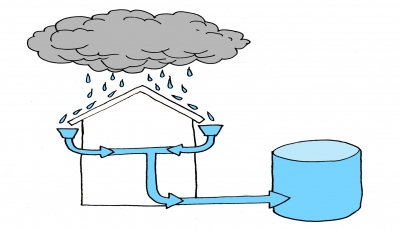Reclaim Waste Melbourne: Proven Techniques for Effective Liquid Waste Removal
Wiki Article
Fostering Resource Performance and Environmental Security With Fluid Waste Removal Programs
In the realm of environmental stewardship, the administration of fluid waste stands as a vital juncture where source efficiency and environmental security assemble. Via a lens of proactive engagement and critical insight, the landscape of liquid waste monitoring introduces a tapestry of challenges and opportunities that bid us to discover the path in the direction of a greener and even more lasting future.Relevance of Fluid Waste Removal
The importance of liquid waste removal lies in its crucial role in preserving environmental health and wellness and securing public well-being. Fluid waste, otherwise properly managed, can posture major hazards to ecological communities, water resources, and human health and wellness. Through effective elimination processes, harmful compounds such as pollutants, virus, and chemicals are prevented from infecting the environment and creating damaging effects.Appropriate fluid waste removal additionally aids in protecting against the spread of illness and lowering the potential for groundwater contamination. By securely taking care of liquid waste, the risk of waterborne diseases and pollution-related health issues is considerably minimized - Reclaim Waste. Furthermore, effective removal practices add to keeping the total tidiness and appearances of neighborhoods, thereby boosting the quality of life for citizens
Additionally, liquid waste removal plays a vital role in sustaining lasting advancement and making certain conformity with ecological guidelines. By adhering to correct waste monitoring companies, methods and industries can reduce their ecological impact and show business responsibility. Inevitably, buying durable fluid waste elimination programs is vital for promoting environmental stewardship and cultivating a much healthier, much safer future for all.

Benefits of Effective Disposal
Reliable disposal of liquid waste not only safeguards environmental health and wellness and public wellness but likewise generates numerous benefits that expand past prompt control steps. Via procedures like recycling and power recuperation, valuable resources can be drawn out from fluid waste, advertising sustainability and reducing the strain on raw materials. In general, the advantages of effective liquid waste disposal are multifaceted, encompassing ecological defense, resource efficiency, and financial advantages.Technologies for Waste Treatment
Making use of sophisticated technologies for waste therapy plays a critical role in making sure the efficient monitoring and risk-free disposal of liquid waste. One of the vital innovations used in fluid waste therapy is biological therapy.In addition, thermal treatment approaches such as incineration can be utilized for the complete devastation of hazardous elements in fluid waste. In general, the combination of diverse therapy modern technologies ensures extensive and eco friendly monitoring of liquid waste.
Role of Regulations and Conformity
In the world of fluid waste monitoring, adherence to governing frameworks and conformity requirements is critical for guarding environmental health and wellness and sustainability. Rules play a crucial function in regulating the proper handling, treatment, and disposal Liquid waste removal of liquid waste to stop damage to environments and human health. By developing clear standards and requirements, governing bodies guarantee that businesses and people associated with liquid waste management run in an environmentally responsible manner.Conformity with these regulations is not only a legal need but also an ethical obligation to shield the atmosphere for existing and future generations. It involves implementing ideal methods in waste collection, transportation, treatment, and disposal to decrease environmental influence and promote resource efficiency. Non-compliance can cause penalties, lawful activity, and reputational damage for companies, highlighting the relevance of promoting regulative requirements.

Future Fads in Waste Monitoring

Another crucial pattern in waste management is the fostering of sophisticated information analytics and fabricated intelligence to maximize waste collection paths, boost arranging processes, and improve general functional performance. These innovations make it possible for waste monitoring companies to make data-driven decisions, resulting in cost financial savings and environmental advantages.
Moreover, there is an expanding emphasis on the growth of decentralized waste administration systems, such as onsite therapy facilities and mobile waste handling units. These systems provide versatility and scalability, permitting a lot more effective waste handling in diverse environments.
Verdict
To conclude, promoting source performance and environmental protection via fluid waste removal programs is important for lasting development. Reliable disposal techniques, advanced innovations for waste treatment, and stringent regulations play crucial roles in lessening ecological effect. Looking ahead, continual advancement and renovation in waste monitoring methods will be essential for resolving the growing difficulties of fluid garbage disposal.In the world of ecological stewardship, the administration of liquid waste stands as an important time where resource performance and ecological protection converge (Liquid waste removal).Using innovative modern technologies for waste therapy plays a critical duty in ensuring the efficient administration and secure disposal of liquid waste.In the realm of liquid waste management, adherence to regulatory structures and conformity criteria is vital for guarding ecological health and wellness and sustainability.In verdict, promoting source performance and ecological protection via liquid waste elimination programs is vital for lasting development. Looking ahead, continuous technology and enhancement in waste administration techniques will be necessary for addressing the expanding challenges of liquid waste disposal
Report this wiki page